Seeing and bringing home your new puppy is always an exciting and magical time. Almost everyone in the house is bursting with excitement and desperate to play with the newest member of the family.
You probably must have been planning the arrival of your puppy for months or maybe even years. Everything is personalized and ready to welcome the new puppy and help them settle in straight away.
Puppy ownership comes with many perks and responsibilities. By becoming a puppy owner, you are taking responsibility for another life!
So much happens in the first few weeks of your puppy’s arrival like meeting the new family, vaccinations, starting puppy training, and much more! One thing that you may have overlooked without realizing it is creating a schedule for your puppy.
Why do I need to create a schedule for the puppy

We all need to understand why our puppy needs a schedule. When a little puppy comes to their new home, they try to understand and adapt to their new environment and family. Having a daily routine makes your puppy’s life more relaxed and predictable.
Creating a schedule is especially important when nurturing good eating habits, potty training, and encourages their confidence and bond with you.
The sooner you create a schedule, the sooner your puppy will adjust to his new home. Schedules and routine make it easier for everyone to know what’s expected and what's the acceptable behavior. Remember that potty accidents and bad behaviour of a little puppy will not seem so adorable when he’s a full-grown adult dog.
Your puppy’s feeding schedule
Unlike mature dogs that eat once or twice a day, most puppies need to eat puppy food three times a day. There is no magic formula and every little furry ball is a bit different. Here are a few tips for getting your puppy started on feeding schedule:
- Feed your puppy 3 times a day up until the age of 12 weeks.
- Make it easier to remember by planning his meal times around your own breakfast, lunch, and dinner.
- Wash out his food and water bowl and make sure they remain clean.
- Make sure your puppy has plenty of freshwater available at all times.
- Remember that inconsistent eating times often mean inconsistent potty times.
Schedule potty breaks for the puppy

Keep to a regular routine and give regular potty breaks, every 2-4 hours and after every change of activity. This is particularly important during house training and will keep potty accidents to a minimum.
In the beginning, your puppy will need to relieve himself more often. They are in the process to learn when and where to go. If you are working during the day, consider hiring a dog sitter who can take your puppy out for potty breaks to assist with this process.
Puppy potty training is all about consistency, patience, and positive reinforcement. The goal is to instill good habits and build a loving bond with your puppy.
Playtime is important!

Puppies need time to get rid of some of their excess puppy energy and have fun! Playtime is a good opportunity to train your puppy good play manners such as to avoid play-bite by engaging them to play with chew toys. Having some scheduled playtime will ensure that you are spending quality time with your puppy.
A brief walk around the neighborhood, playing with toys, and time spent bonding go a long way toward spending energy. Various shorter sessions are better for a puppy than one long one. Avoid strenuous exercise as they are not good for puppies.
Naps and bedtime

A young puppy needs up to 20 hours of sleep a day! These adorable little creatures are growing up really fast and they can easily get tired after playing. You should schedule out a few nap times throughout the day in a quiet spot in the house, put them in their crate or playpen, and let your pup rest. Sometimes, if your puppy is overtired, it can start to get fussy. That just means it’s time for a nap!
Plan on quiet nap times for him several times during the day. Teach your children not to disturb the puppy when he’s sleeping. You might put a crate in a quiet part of the house so he won’t be distracted by the noises during naptime.
Crate training

Crate training provides puppy owners greater peace of mind. It gives your little furbaby a sense of protection and security. Your puppy can enjoy the privacy of a den of its own.
A crate is a great way to keep your puppy safe when you can't be in the room, watching over it. The right way to crate train is to have the puppy discover the crate as a great place to be. You will need to work on the entire process for weeks until your puppy is crate trained.
Begin crate training as soon as you bring your puppy home. A crate will give your puppy safe and a secure place if you have to leave him unattended in the house. It will also assist with housebreaking and potty training.
What will you need to get started?

The unconditional love you feel towards your puppy sounds thrilling and amazing. Puppies are like small kids and they depend on us for everything.
The requirements of a young puppy include feeding, exercise, rest, basic obedience and playtime, and much more. There are a few essential items you will need to get started.
- A comfy bed: Puppies need a comfortable, cozy bed and bedding.
- Dog crate: You possibly need a dog crate for house training a puppy.
- Food and water bowls: You also need dog bowls and water bowls made of safe material.
- Food bowl mats: You also need beautiful and stylish food bowl mats to keep your floors clean and tidy.
- Toy chest: You also need a great toy box to keep all puppy toys and keep the space neat.
- Toys: You also need a few interactive and adorable toys to get started.
- Puppy food and treats: You also need healthy puppy food and delicious treats.
Sample puppy schedule
Here's a sample puppy schedule:
- First thing in the morning: Take your puppy out first thing in the morning to relieve himself. Make time to play and spend some time with him after he has relieved himself.
- Breakfast time: Feed the puppy in the morning. Don't leave the puppy food down for more than 15 minutes. After that, pick up the food bowl until the next mealtime. Wash the food and water bowl and provide clean and fresh water.
- After the breakfast: Small puppies generally need to do their business again, within a few minutes of eating. So, give them another potty break. After this, spend some time playing or doing a little training with your puppy.
- Mid-morning: The rest of the morning might be devoted to your puppy's nap time. Ideally, the puppy should spend nap time in a dog crate or pen. This will teach your fur baby how to be alone when necessary. If your puppy will be home alone for long hours, you need to set up a pen with an area for him to relieve himself. Alternatively, you can consider having a dog sitter.
- Noon: A repeat of the early morning routine. Give your puppy lunch and another trip outside after the meal. Spend some time playing with your puppy so that he can burn some energy. Give one more potty break before the afternoon nap.
- Mid-afternoon: When he wakes up, it’s time to go out for puppy to relieve himself again. If you’re home, your puppy can play and get some training with you for a while before dinner.
- Dinner: If you arrange his mealtimes around yours, you can feed him while you are preparing dinner or while the household is eating.
- Evening: Give your puppy another potty break! The early evening is a good time for lots of socialization. After all the fun time, exercise and training, give him a chance to take a potty break. And make sure he potties right before bed.
- Bedtime: A set bedtime routine makes his adjustment and house training easier for everyone. Take your puppy to his crate and help him settle down for the night.
- Night: If your puppy is very young, you need to set an alarm so you can get up and take him out for a quick potty break. You need to respond to his whining and barking.
Final thoughts
Remember that puppies are very flexible and, with good planning on your part, can adapt to anything within reason. By establishing the routine from the very beginning, you’ll be on your way to a happy, well-adjusted dog. It’s worth putting in the time and effort right now so that undesirable habits and behaviors won’t stand a chance.
Every little puppy is a little different. So, what goes ideal for one puppy may not work for the other. Food and physical activity requirements vary with the puppy's breed, age, gender, and overall personality.
Remember, comfort, love, and care are all important for puppies. You just have to be a little more creative!
Happy petting!




